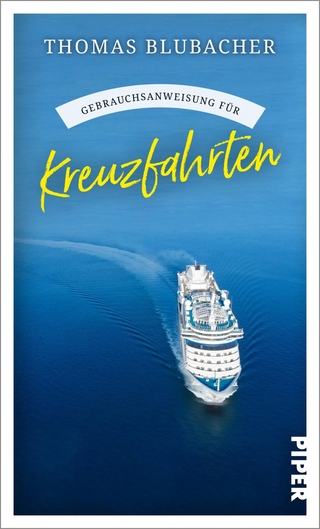
Beyond the Barrier
The Story of Byrd's First Expedition to Antarctica
Seiten
2012
Naval Institute Press (Verlag)
978-1-55750-713-6 (ISBN)
Naval Institute Press (Verlag)
978-1-55750-713-6 (ISBN)
- Titel z.Zt. nicht lieferbar
- Versandkostenfrei innerhalb Deutschlands
- Auch auf Rechnung
- Verfügbarkeit in der Filiale vor Ort prüfen
- Artikel merken
Without discrediting the expedition's success or Admiral Richard Byrd's leadership, this book makes clear for the first time that the admiral was not the saintly hero he and the press depicted. This is a provocative reassessment of an American hero and a scrupulously objective book that makes a major contribution to history.
When this book originally appeared in 1990, it was hailed as an important new work because of the author's access to Adm. Richard E. Byrd's just-released private papers. Previous books on the legendary polar explorer had to rely on sources subject to the admiral's vigilant censorship or the control of his heirs and friends. With this study Eugene Rodgers provides a scrupulously honest and objective account of Byrd's 1929 expedition to Antarctica.
Without discrediting the expedition's success or Byrd's leadership, Rodgers shows that the admiral was not the saintly hero he and the press depicted. Nor was the expedition without its problems. Interviews with surviving members of the expedition together with a wealth of other new material indicate that Byrd, contrary to his claims, was not a good navigator--his pilots usually had to find their way by dead reckoning--and that he was not on the actual flight that discovered Marie Byrd Land. The book further reveals a crisis over drunkenness among the men (including Byrd), the admiral's fear of mutiny, and his rewriting of news stories from the pole to embellish his own image.
When this book originally appeared in 1990, it was hailed as an important new work because of the author's access to Adm. Richard E. Byrd's just-released private papers. Previous books on the legendary polar explorer had to rely on sources subject to the admiral's vigilant censorship or the control of his heirs and friends. With this study Eugene Rodgers provides a scrupulously honest and objective account of Byrd's 1929 expedition to Antarctica.
Without discrediting the expedition's success or Byrd's leadership, Rodgers shows that the admiral was not the saintly hero he and the press depicted. Nor was the expedition without its problems. Interviews with surviving members of the expedition together with a wealth of other new material indicate that Byrd, contrary to his claims, was not a good navigator--his pilots usually had to find their way by dead reckoning--and that he was not on the actual flight that discovered Marie Byrd Land. The book further reveals a crisis over drunkenness among the men (including Byrd), the admiral's fear of mutiny, and his rewriting of news stories from the pole to embellish his own image.
| Erscheint lt. Verlag | 30.4.2012 |
|---|---|
| Verlagsort | Annopolis |
| Sprache | englisch |
| Maße | 156 x 228 mm |
| Gewicht | 535 g |
| Themenwelt | Reisen ► Reiseberichte ► Welt / Arktis / Antarktis |
| Naturwissenschaften ► Geowissenschaften ► Geografie / Kartografie | |
| ISBN-10 | 1-55750-713-9 / 1557507139 |
| ISBN-13 | 978-1-55750-713-6 / 9781557507136 |
| Zustand | Neuware |
| Haben Sie eine Frage zum Produkt? |
Mehr entdecken
aus dem Bereich
aus dem Bereich
eine Welt aus Eis und Licht – 54 Wochen in der Antarktis
Buch | Hardcover (2024)
Malik (Verlag)
22,00 €
die Reise der Belgica in die dunkle antarktische Nacht
Buch | Softcover (2023)
Piper (Verlag)
18,00 €


